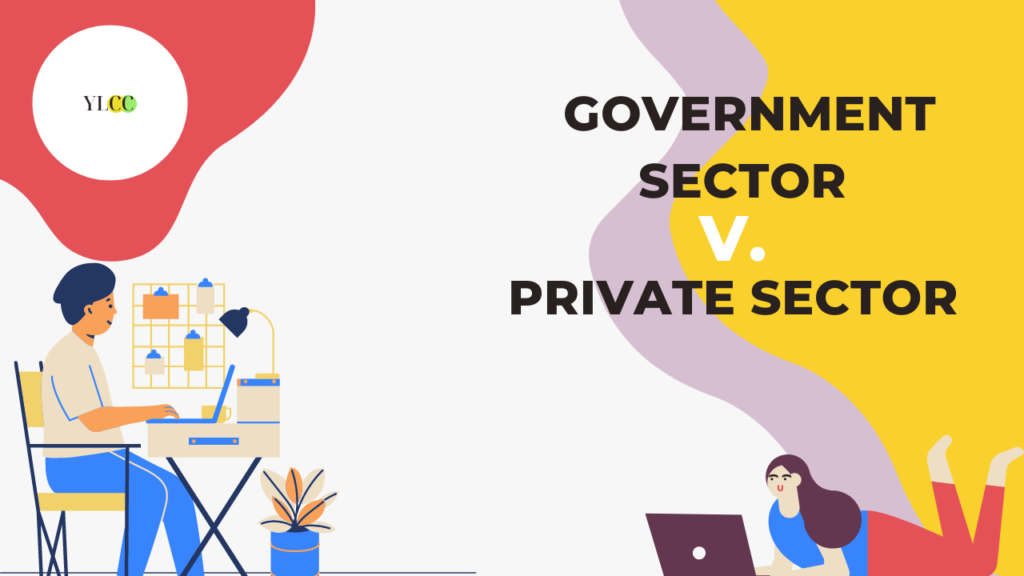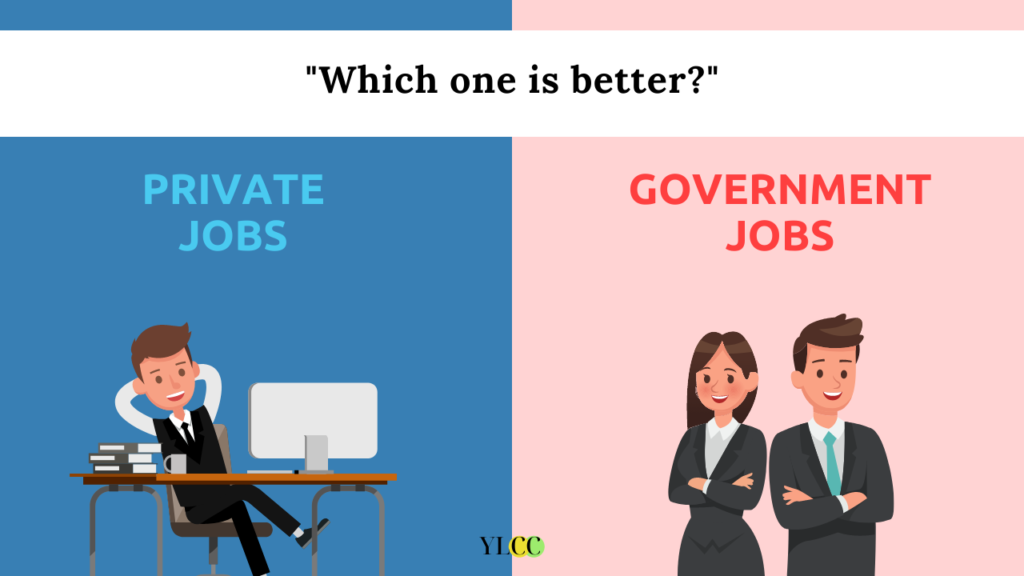
Jobs in the private and public sector vary in several aspects. Which one is better in terms of employment opportunities is a debate that has for long existed in academic circles. This article aims to objectively compare both sectors in light of their pros and cons.
Private Jobs
The private sector employs workers through individual business owners, corporations or other non-government agencies. Jobs include those in manufacturing, financial services, professions, hospitality, or other non-government positions.
Pros
- Remuneration
One of the factors that most attract job-seekers towards private sector jobs is the high remuneration. Private sector remuneration even for entry-level positions is quite substantial, and it only increases as one ascends the corporate ladder.
Especially for new graduates in professional fields who are likely to have a student loan to take care of, a higher remuneration becomes highly lucrative and a positive note to start their career on.
- Job Satisfaction
Private sector jobs are usually associated with immense job satisfaction. The experience is intellectually challenging as employees are usually made to work on a variety of tasks that build a positive work experience and push employees to cultivate new skills and talents.
- Work Environment
The work environment in private job is largely positive, where there is a sense of belonging to the organization. The work itself is usually systematic and organized.
Cons
- Stress
Private jobs usually have a substantial workload to the extent where it becomes difficult to manage stress. Most private employees are expected to be available 24×7 and work overtime beyond the designated hours. Work from home during the pandemic came as a relief to many as they could work from the comfort from their homes instead of having to stay at the office for ungodly hours. Poor work-life balance is a direct ramification of this stress.
- Instability
In recent times, especially with the global pandemic playing a role, instability has become a huge drawback for private jobs. Unlike in the government sector, there is no permanency in tenure and one can be asked to hand in a resignation, or even laid off without warning at any time. Large corporations whose profits were affected during the pandemic laid off thousands of employees without notice and this led to several hardships and complications.
- Intense Job Competition
Private jobs are often characterized by intense competition at the workplace. At any given point of time, there are hundreds of candidates fighting for a single vacancy. Moreover, co-workers also try to compete in order to secure better incentives and promotions. The management tend to promote only the most deserving candidates, and performance is only one of the determinant factors.
- Lesser Perks
While the remuneration is high-end, jobs in the private sector often do not provide much in the way of perks and additional allowances. In particular, basic perks like health insurance and retirement benefits are not provided in most middle and lower level jobs in the private sector.

Government Jobs
Government jobs in India, especially the civil services, have an extremely competitive recruitment process. Government jobs are still a priority for many in India, and for a number of reasons. On the other hand, it also has a number of drawbacks as compared to the private sector.
Pros
- Job Security
Job security is a highlight of a government job. For all practical purposes, government servants serve till an age of 55 or 60, as per the law. Termination of government jobs are extremely rare, and only happens in cases where there is a severe performance issue or in cases of insubordination or corruption.
- Better retirement policy
Government jobs in India provide a fixed amount to employees even post-retirement and this factor plays a key role in decision-making for candidates.
- Perks
Although remuneration in government jobs may be on the lower side, the perks seem to compensate more than what is necessary. The retirement benefits alone make government jobs a highly lucrative option. Most government jobs also offer accommodation facilities, medical facilities, numerous holidays, a plethora of allowances and bonuses, as well as travel and telecom expenses from time to time.
- Better Work Life Balance
Government jobs function in a very time-bound format. Unlike the private sector, there is no hyper-competitiveness. Government employees, aided by factors like red tapism, observe strict 9-5 timings and do not have any responsibility beyond their designated working hours.
Cons
The drawbacks of government jobs usually include less chance of growth, stagnant work environment, monotony and so on. There is a strong job satisfaction involved for those who wish to serve their country and contribute in governmental processes.
From the above analysis, it becomes clear that there are several pros and cons associated with both private as well as government jobs. At the end of the day it all boils to the preferences of the candidate. In India, there are almost an equal number of takers for both sectors which is evidence that both spheres are rewarding in their own ways.
YLCC would like to thank Sachet Labroo for his valuable inputs in this article.






